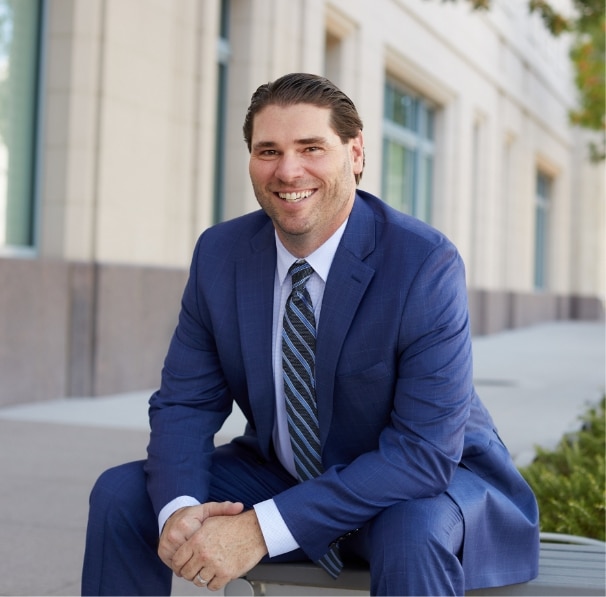What happens after a deposition in a personal injury case? First, a court reporter prepares and provides a transcript. Your attorney and the defense attorney receive and review the copy of the transcript. The defense attorney may require you to undergo an independent medical examination. Your attorney continues negotiating with the at-fault party’s insurer.
Table of Contents
ToggleThe parties may hold a mediation session if you cannot reach a settlement agreement with the insurer. Your personal injury case will proceed to trial if negotiation and mediation are unsuccessful. If you settle or win at trial, you receive financial compensation for your damages.
What Is a Deposition?
A deposition is a recorded interview that collects specific facts and circumstances of a civil case. The defense attorney will ask you case-related questions. Likewise, your attorney will ask the defense witnesses questions.
You will get notified of the date, time, and venue of the deposition beforehand. Depositions usually happen in a lawyer’s office or court reporter’s office.
Be sure to answer questions honestly and to the best of your knowledge, since you will be under oath. It’s best to have a personal injury attorney present during your deposition. Your attorney helps make sure that the other party’s attorney asks only relevant questions by making limited objections when necessary. Your attorney also helps make sure that you describe the extent of the injuries in your personal injury case without admitting fault by preparing you in advance.
A court reporter is present to record your testimony and everything that occurs during the deposition. Note that your deposition testimony is generally admissible in court if your case goes to trial.
A deposition is a component of the discovery phase of your personal injury case. It typically happens after you initiate a lawsuit against the at-fault party, but before a trial. The at-fault party’s attorney will ask you to submit to a deposition through a notice of deposition. You must participate once you get notified of the deposition.
How Are Depositions Used in a Personal Injury Case?
Depositions enable personal injury attorneys to collect facts and information, which may give their clients a strong position in a case. Injury attorneys may also use the information gathered to weaken the other party’s position.
Depositions allow your attorney to assess the strengths and weaknesses of your case. The attorney can then decide whether to continue with negotiations or proceed to trial.
Your attorney can also use deposition testimony to disprove testimony in a trial. This usually happens when a witness’s testimony during trial contradicts the recorded deposition testimony. You or the opposing party may call other witnesses to attend a deposition to elicit more information.
What Happens After a Deposition in a Personal Injury Case?
The deposition and discovery phase are important milestones in a personal injury case. So what happens after a deposition hearing? After deposition:
A Court Reporter Creates and Provides a Written Transcript
A court reporter creates a legible transcript and provides a copy to both parties after the deposition. It might take several weeks for both parties to receive the written transcript. The court reporter typically must convert all testimonies and interactions recorded during the deposition.
Written Transcript Review
Both parties get a copy of the written transcript for review. Your personal injury attorney will review the details with you to identify any mistakes or inconsistencies. Inform your attorney if you unintentionally said something untrue when answering a question during the deposition.
Upon reviewing the transcript, your attorney can offer you a more accurate prediction of your case’s outcome. Your attorney may, for instance, tell you how long a personal injury case takes. He or she may also choose to depose more third-party witnesses to challenge facts or misrepresentations made by the opposing party.
Independent Medical Examination
The opposing side may require you to undergo an independent medical examination once the deposition is over. In this scenario, the insurer usually selects the medical provider to carry out the medical exam.
This independent medical exam is often an attempt by the insurer to find evidence to reduce the severity of your injuries. It may also be an effort to find alternative explanations for your injuries besides the accident.
Seasoned attorneys are aware of this tactic. Your attorney prepares you to provide the doctor with only the necessary information. The attorney also requests your treating doctor to prepare a report describing your injuries in detail and how they have and will continue to affect you.
Negotiation
Personal injury cases undergo multiple rounds of negotiation before reaching a settlement agreement or proceeding to trial. So, expect your attorney to continue negotiating with the insurer even after the deposition.
Mediation
If the numerous rounds of negotiation don’t result in a settlement agreement, a mediation session may be necessary. This session involves a mediator knowledgeable about personal injury law who attempts to help you and your attorney reach an agreement with the opposing party. In Nevada, a mediator may be a judge, an attorney, or a non-attorney.
Both parties get a chance to present evidence and argue their case. Your attorney may ask you to talk about your accident and how it has impacted your life. You may also let your attorney speak on your behalf.
The mediator typically suggests steps to resolve the matter. The mediator may, for instance, recommend a settlement offer or resolution of some or all the issues in the case. You may either accept the offer or take the issue to trial.
A Personal Injury Trial
If rounds of negotiation or mediation are unfruitful, you may choose to take your case to trial. At trial, both sides have an opportunity to present evidence and arguments. Your attorney will provide evidence that shows the other party was at fault for the accident. Your attorney will also present proof of all damages stemming from your injuries.
The jury (if a jury trial) or trial judge (if a bench trial) then evaluates the evidence and arguments presented to determine whether you have satisfied your burden of proof. If so, the verdict may be in your favor. The verdict specifies the amount of money you should get from the defendant as compensation for your damages.





